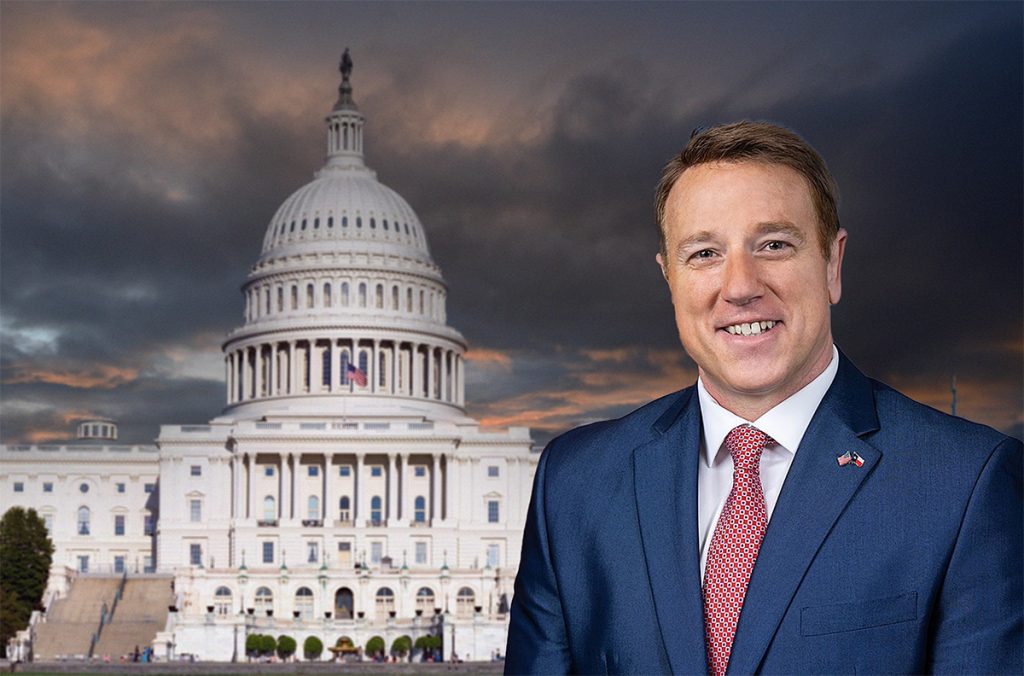Along with every other republican representing Texas
Representative Pat Fallon, who represents Rockwall County, finds himself at the center of the debate over the National Defense Authorization Act (NDAA) for Fiscal Year 2024. This expansive legislation, spanning 2330 pages, covers a wide array of topics crucial to the Department of Defense (DOD), military construction, national security programs of the Department of Energy (DOE), and the Maritime Administration.
Let’s delve into some of the key positive provisions of the NDAA:
1. Sec. 716: Protecting Reproductive Health Decisions – Sec. 716 stands out as a critical provision nullifying the October 20, 2022, DOD memorandum titled “Ensuring Access to Reproductive Health Services.” The section prohibits the expenditure of funds for the implementation of this memorandum or any successor memorandum. Moreover, it bars DOD from reimbursing health care professionals’ fees for obtaining licenses if the purpose is to provide abortion services.
2. Sec. 717: TRICARE Limitations on Gender-Related Medical Services – Sec. 717 imposes restrictions on TRICARE, barring it from covering sex reassignment surgeries or hormone treatments for gender alteration purposes for transgender individuals.
3. Sec. 736: COVID-19 Measures on Military Bases – Sec. 736 addresses the ongoing battle against COVID-19 by prohibiting DOD from mandating the wearing of masks on military bases within the United States. This reflects a nuanced approach, acknowledging the evolving nature of the pandemic.
4. Sec. 904: Reevaluation of Diversity Positions – Sec. 904 is a noteworthy provision that eliminates the Chief Diversity Officer position in DOD along with the Senior Advisor for Diversity and Inclusion roles in military departments. It also restricts the establishment of similar positions and prohibits new positions related to diversity, equity, and inclusion within DOD.
5. Sec. 1031: Guantanamo Bay Detention Prohibition – Sec. 1031 extends the prohibition on using DOD funds for the transfer or release of individuals detained at Guantanamo Bay, Cuba, until December 31, 2024.
6. Sec. 1090: Declassification of UFO Sightings – Sec. 1090 mandates the declassification of records related to publicly known sightings of unidentified aerial phenomena, promoting transparency while carefully considering national security concerns.
7. Sec. 1222: Special Inspector General for Ukraine Assistance – Sec. 1222 establishes an Office of the Special Inspector General for Ukraine Assistance, emphasizing accountability and oversight in the use of funds for military and nonmilitary support to Ukraine.
8. Sec. 1879: Curbing Collaboration with the Chinese Government – Sec. 1879 places restrictions on federal agencies, prohibiting support for research conducted by the Chinese government, the Chinese Communist Party (CCP), or any entities owned or controlled by them.
9. Sec. 1882: Funding Limitations on Wuhan Institute of Virology – Sec. 1882 bars funds authorized under the bill from being allocated to the Wuhan Institute of Virology, EcoHealth Alliance.
However, amidst the positive aspects of the NDAA, a controversial extension of SEC. 7902, discreetly prolonging Title VII of the Foreign Intelligence Surveillance Act (FISA), has stirred controversy. The surprise alignment of every Republican from Texas, including Representative Pat Fallon, in favor of H.R.2670, despite concerns over the FISA extension, raises questions about the motivations and allegiances within the political landscape.
The controversy surrounding the FISA extension serves as a stark reminder of the opaqueness inherent in political decision-making. Representative Fallon’s role in this unexpected alignment of Texan Republicans and his stance on surveillance powers would be crucial in understanding the dynamics of this legislative process, which, despite positive provisions, raises concerns about transparency and individual freedoms.

